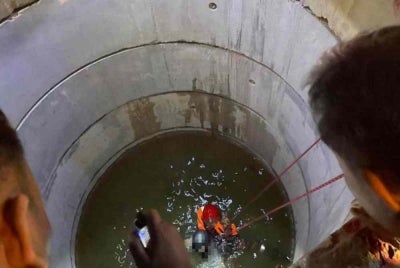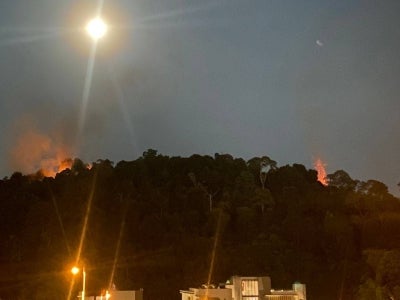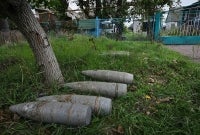Four militant groups under police's radar - ESSCom's commander

LAHAD DATU - The Eastern Sabah Security Command (ESSCom) has listed four militant groups on its radar, namely the Abu Sayyaf Group (ASG), Kidnapping For Ransom Group (KFRG), Islamic State Daulah Islamiah (ISDI), and Royal Security Force (RSF).
ESSCom's commander Datuk Victor Sanjos said the police viewed potential threats from these militant groups seriously.
However, he added that up to this point in their assessment, there had been no evidence of any activities by these groups aimed at recruiting residents or supporting their propaganda efforts.
“This is because previous arrests of insiders served as a lesson to the public. In terms of potential threats, it is currently at a moderate level.
“This assessment is based on the enforcement actions taken by the Philippine government, which has shown a serious and committed approach to tracking and subsequently neutralising threats posed by these groups," he told Sinar Harian in an exclusive interview recently.

Commenting further, he said the influence of these groups in violent activities in Eastern Sabah had not been detected at this time.
However, he said ESSCom will not lower its level of security monitoring and intelligence gathering on these groups.
“Based on the focus and activities of militants, there are 13 individuals on the wanted list. In addition, this year up to September, five suspects have been arrested, including one woman.
“Three suspects are linked to financing acts of terrorism by providing financial support to terrorists or related organisations, while two suspects are supporters of the RSF group,” he said.
He added ESSCom played a role to ensure security in the Eastern Sabah Security Zone (ESSZone).
It was the agency responsible for coordinating the operations of all enforcement, security, and defence agencies in the ESSZone.
In regard to ESSCom's efforts to detect subsidised goods smuggling, Victor said they took the matter seriously as it involved revenue loss for the country.
Besides, he added that all subsidised goods had the potential to be smuggled due to supply and demand dynamics, with smuggling methods changing over time in response to market conditions.
“As of September this year, a total of 120 cases were recorded involving seizures amounting to RM13.2 million, along with the detention of 87 people," he said.
He added that ESSCom oversees approximately 1,700 square kilometres of coastal shoreline from the Kudat district to Tawau.
"As a result, human resources, security assets (both on land and at sea), and modern technology including artificial intelligence (AI), radar, and drones are required and will be enhanced to ensure the continued safety of the ESSZone," he said.
He stressed that it should be realised that militant activities pose a danger to lives and property, while the smuggling of subsidised goods infringes upon the sovereignty of the country without permission.
“Therefore, for any community members who engage in, are involved in, or collude with such activities, this constitutes an offence and a betrayal of the nation.
“So please avoid it, as such actions invite risks to the lives and property of others and even the sovereignty of the country itself," he advised.
Victor added that communities who know about militant crimes and subsidised goods smuggling in their respective areas are urged to come forward and provide information. This will enable immediate enforcement actions to be taken for the continuity of well-being.
“In line with ESSCom's motto of jointly generating well-being and as the ESSCom commander, let us work together in the effort to curb any criminal activities to ensure the sovereignty of this nation remains safe from threats," he said.
He said ESSCom was ready to face various challenges is reflected in the security forces' successes in handling kidnappings and any cross-border criminal elements, including smuggling activities within the operational areas.
Download Sinar Daily application.Click Here!














